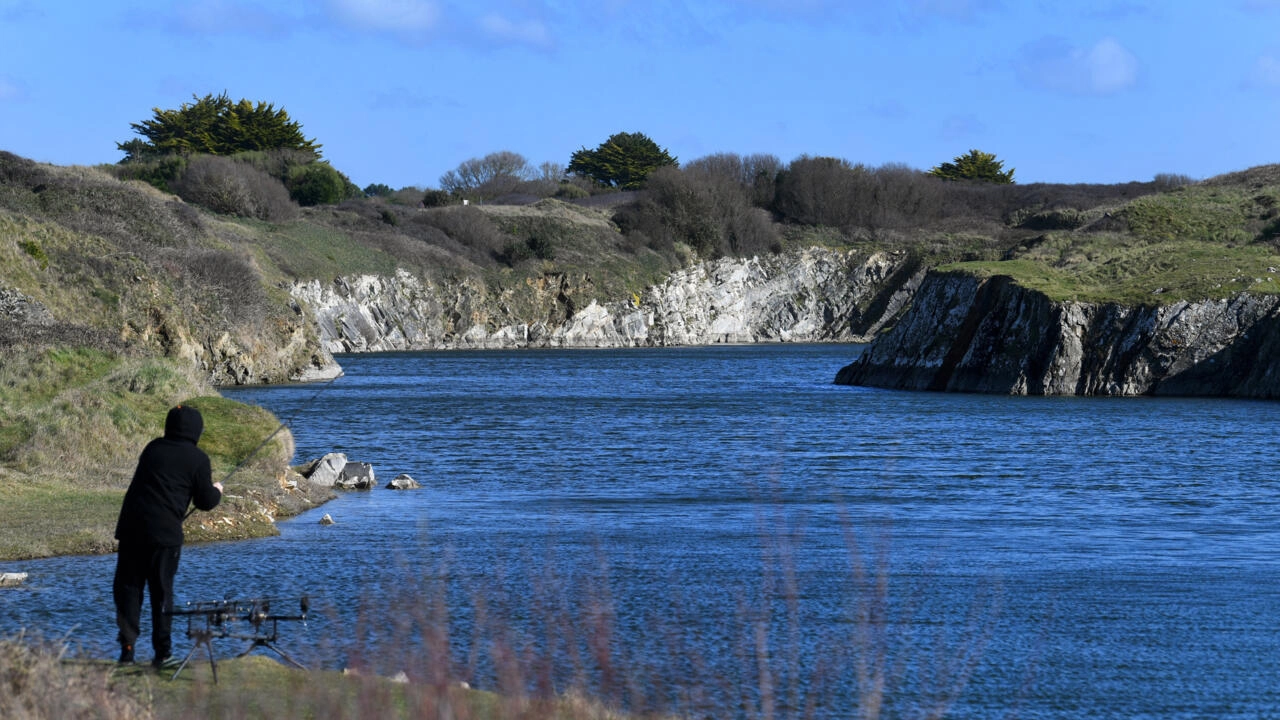
With the EU committed to making electric vehicles widely available by 2035, the demand for metals required to produce batteries, particularly lithium, is expected to explode. The market is currently dominated by a handful of countries, but Europe wants to join the club by exploiting its subsoil.
Shortly before arriving at the Paris Motor Show on Monday, French President Emmanuel Macron told the financial daily Les Echos that his administration wanted to make electric vehicles “accessible to everyone”.
Macron then proceeded to announce a series of measures to enable households to acquire electric vehicles. With the EU seeking to ban the sale of combustion engine vehicles from 2035, France is trying to gradually phase out fossil-fuel cars. While the move is seen as an essential step on the road to energy transition, it also poses a serious problem: it will require massive quantities of metals needed to manufacture batteries, especially lithium.
The figures speak for themselves. Since 2015, production volumes of lithium – also known as “white gold” – have tripled worldwide, reaching 100,000 tonnes per year by 2021, according to the International Energy Agency. The volumes could increase sevenfold by 2030. At the European level, about 35 times more lithium will be needed in 2050 than today, according to an April study by KU Leuven, a Catholic research university in Belgium.
“We are at a stage where all countries are starting their energy transition more or less at the same time and this generates very significant metal needs,” noted Olivier Vidal, a geologist and director of research at the French National Centre for Scientific Research (CNRS). “This will certainly create tensions in the coming years, with expected increases in costs and, possibly, supply difficulties. So, there is a real strategic and sovereignty issue for states.”
The European Commission is well aware of these concerns and included lithium in the list of critical raw materials with a risk of shortage, back in 2020. Lithium “will soon be even more important than oil and gas”, said European Commission chief Ursula von der Leyen in September 2022.
Extraction projects in their infancy
Lithium production today is dominated by just a handful of countries: Australia, which has 20% of the world’s reserves of “white gold”, and Argentina, Chile and Bolivia, which have 60%. China, on the other hand, was an early investor in refining and controls 17% of the world’s lithium production. With just five countries controlling 90% of world production, the International Energy Agency calls it a “quasi-monopoly” situation.
Europe hopes to make the most of the new “white gold” rush by exploiting its own subsoil. The continent’s main reserves are in Portugal, Germany, Austria and Finland. In France, the French Geological and Mining Research Bureau (BRGM) drew up an inventory in 2018 highlighting reserves in Alsace, the Massif Central region, as well as in the Armorican Massif area in Brittany.
Europe’s lithium extraction and production projects have been mostly undertaken by small and medium-scale companies across the continent. “The most successful ones are in Finland. Lithium production could start in 2024 thanks to the exploitation of a small mining site located about 600 km north of Helsinki,” explained Christian Hocquard, a geologist-economist and co-author of a book on lithium energy transition. “In the Czech Republic, an Australian company, European Metals, wants to exploit old tin mines located north of Prague. There are similar projects in Germany and Austria,” he noted.
“These are generally minor projects, carried out by small companies. The big ones prefer to invest in Australia or Latin America,” explained Hocquard. “Few of them will see the light of day, blocked by the difficulties of obtaining permits but above all due to resistance from local communities,” he predicted.





















